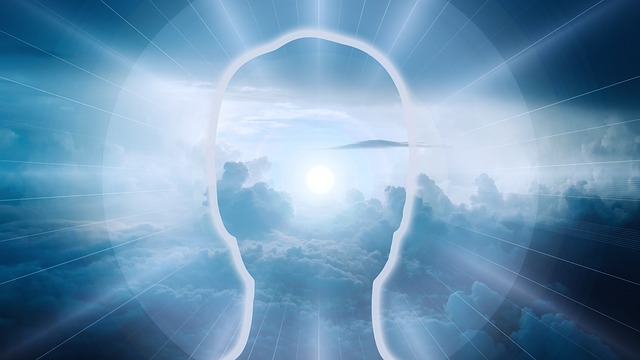 Submitted by Nous on
Submitted by Nous on

Image by Gerd Altmann from http://Pixabay.com
Old-school substance dualists hold that people not only have material or physical bodies but also immaterial souls, and that the soul rather than the body is the locus and origin of conscious experience (qualia, "something-it's-like"-ness, phenomenality). Two great advantages of this view are (1.) that it avoids the puzzle of having to explain how dumb, bumping matter can give rise to something as seemingly ontologically radically different as consciousness (at least many people find this puzzling), (2.) that it promises hope of an afterlife, since possibly the soul could continue to exist after the body has died.
However, substance dualism faces a scope of ensoulment problem, or what I'll call the dualist's quadrilemma. The more I think about this quadrilemma, however, the more I think some version of it might trouble virtually all theories of consciousness.
Who has a soul? I see four possible answers, each of which is problematic:
(1.) Only human beings have souls. (At least on Earth. Let's bracket Martians and angels.) At the moment of conception or at the moment of birth, God or nature gives us a soul, but no dog or chimpanzee or raven has a soul. From this it follows, since souls are the locus of conscious experience, that dogs and chimpanzees and ravens have no conscious experiences -- no emotional experiences, no experiences of pain or hunger, no visual or olfactory experiences. There is nothing it's like to be a dog or chimpanzee or raven -- they are, so to speak, entirely experientially blank, as blank as we normally assume a toy robot to be. They emit behavior similar to the behavior we emit when we experience pain or hunger, and they have nervous systems that closely resemble ours, but that is misleading. They lack the soul-stuff that turns on the lights.
This view is difficult to accept, both on commonsensical and on scientific grounds. Ordinarily, we think that dogs, chimpanzees, and ravens do have experiences, even if their experiences are not as cognitively complex as ours. And scientifically, this view seems to overestimate the gulf between us and our nearest biological relatives -- and furthermore seems to require that there was some discrete moment in our evolutionary history when we changed from unensouled to ensouled creatures (Australopithecus anamensis? Homo habilus?), despite, presumably, no radical saltation in our physiology.
(2.) Everything has a soul! Maybe we all are subparts of a single, grand, universe-sized soul; or maybe there are many, many, tiny souls for tiny objects such as electrons.
Although panpsychist views of this sort have received increasing attention in the philosophy and psychology of consciousness recently, most people in our culture appear to find panpsychism too bizarre to accept. My own view is that one of the main pressures in favor of panpsychism is the seeming unpalatability of the other three horns of this quadrilemma.
(3.) There's a line in the sand. Somewhere between electrons and humans, there's a sharp line between the ensouled and the unensouled creatures. Maybe mammals have souls but no other animal does. Or maybe toads have souls but (cognitively simpler) pond frogs don't.
The problem with this view is that physiology and cognitive sophistication comes in degrees, with no sharp dividing line among the species. If having a soul matters, then there ought to be some radical difference between the souled and unensouled creatures -- at least in their cognition, and probably also in their physiology. But the only place it seems at all plausible to draw a sharp line is between human beings and all the rest -- which puts us back on Horn 1.
(4.) Having a soul isn't a yes/no thing but rather a matter of degree. Some creatures are half-ensouled or 6% ensouled.
The problem with this view is that is requires an entirely novel metaphysics that is difficult to envision. What would it be to be kind of ensouled? Some properties lend themselves to in-between, indeterminate cases: a color might be on the vague boundary between blue and not-quite-blue, a person might be in the vague region between being an extravert and being not quite an extravert. We can imagine how such cases go and build a metaphysics of colors and personality traits to accommodate in-between cases and matters of degree. But souls seem like the kinds of things that one either has or doesn't have, with no in-between cases. I am not aware of any philosopher who has attempted to construct a metaphysics of half-souls, and it's hard to see how this would go.
Now you might say so much the worse for substance dualism! But I think non-dualists face the same quadrilemma, even if not quite as vividly.
What kinds of creatures are conscious? If we don't want to say "only humans" and we don't want to say "everything", then we need either a bright line somewhere or we need a concept of in-between consciousness. A bright line seems implausible given the continuity of cognitive capacities and physiology across living species, in the course of fetal development, and in the course of evolution. So are we (even non-dualists) then pushed into conceptualizing consciousness as the kind of thing that one can kind of have, or half have? I, at least, find this difficult to conceive, and I know of no good attempts to make theoretical sense of the idea. On the face of it, a stream of conscious experience appears to be something you either have (however small or snail-like) or fail to have -- like a soul. There's either a center of subjectivity where experiences arise, or there isn't.
So maybe I need to reconcile myself to one of the other three horns? But they're all so unattractive!
Eric Schwitzgebel
http://schwitzsplinters.blogspot.com/2019/05/the-dualists-quadrilemma-and-all-of-ours.html
- 453 reads